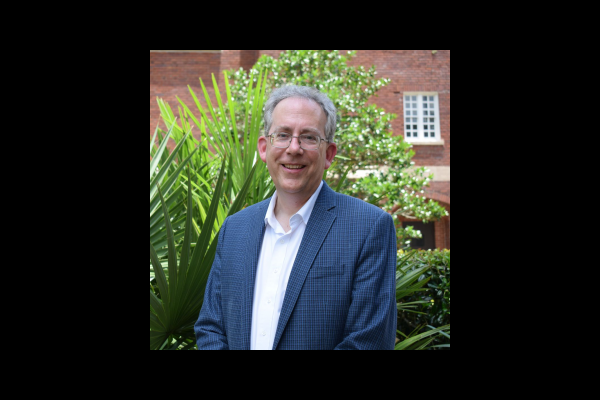This fall, the National Academies of Sciences, Engineering, and Medicine (NASEM) released a report outlining their recommendations for shaping cannabis policy in states that have decriminalized marijuana. These recommendations came from a panel of 18 experts, one of which was Joseph Spillane, Ph.D., chair of the Department of History at UF.
"I think the idea behind my invitation was to bring some historical perspective to a contemporary issue that is nonetheless deeply rooted in the past," Spillane explained. "How could I say no?"
Twelve months of work and consideration went into this report, and the deciding panel was large even by NASEM standards. Aside from Spillane, there were 17 other members from a variety of fields, including health policy, law, psychology, neuroscience, and epidemiology. Spillane was the lone historian and brought with him years of expertise on drug policy and criminal justice in the U.S. Gathering and sharing as much information as possible through discussion and presentations was a key focus, with the goal of agreeing on recommendations unanimously.

The panel's suggestions were split in two, with policy recommendations at both the federal level and state levels. Their recommendations for federal policy are to boost research funding and to raise awareness of cannabis and its effect on public health while passing legislation to close a loophole that allows for the proliferation of unregulated hemp products. At a state level, they encourage setting product standards, requiring training for cannabis sellers, and expunging cannabis-related charges from criminal records. They also pushed for the establishment of safeguards against lobbying from the cannabis industry and for equity in policy.
"Achieving consensus with 17 experts is a challenge, no question," said Spillane. "But it was critical that the final report represented true consensus among the committee members, and it does."
While the report is out now, the panel recognizes that the policy suggestions within, could take a lot of time to be adopted. The combination of cannabis's continued criminalization at the federal level combined with the industry's lobbying power in states where cannabis is legal, stand as major roadblocks, as does the result of the 2024 election. While the public has generally supported medicinal marijuana legalization, there is less consensus on recreational use. As a result, marijuana legalization efforts failed in three of the four states where it was on the ballot. Spillane believes that federal leadership will be critical to placing national cannabis policy on a more orderly and public health-focused basis.
With his contributions to the panel finished, Spillane plans to turn his attention to other projects. "I think there's room for a 'Historian's Guide to Cannabis Policy,'" Spillane said. "That could be a useful little book for folks interested in making constructive regulatory change…"
Source: University of Florida
